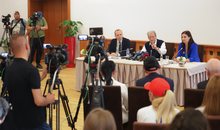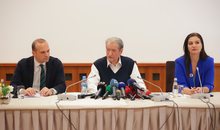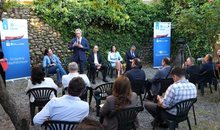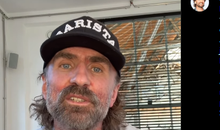
 Flash News
Flash News
Kosovo opens embassy in Malaysia
At first he ridiculed them as 'flying carpets' and then he adopted them/ 7 themes and promises that Edi Rama copied from Sali Berisha in this campaign
Edi Rama's return to the (losing) 2011 campaign
The US withdraws from peace negotiations between Ukraine and Russia.
Vice President Vance's statement distributed by the American Embassy: Where did he say it, in what context, and how does it relate to Albania?
Press Freedom Index: Media in Albania is threatened by politics, the legal framework is deficient
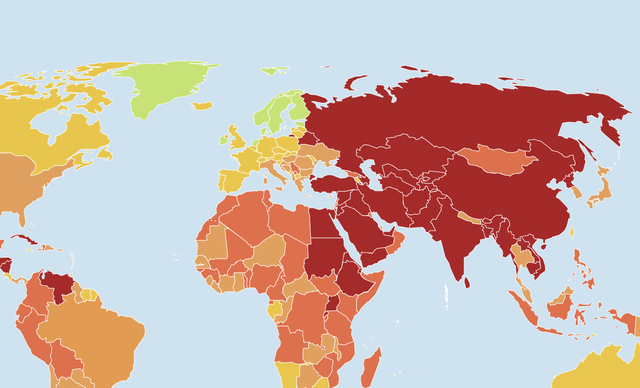
Reporters Without Borders has published the latest data from the World Press Freedom Index 2025.
Albania ranks 80th out of 180 countries for which the index measurements were made. According to the data, in our country, the media is threatened by conflicts of interest between the business world and politics.
The index also highlights the political pressure exerted on journalists, especially during election periods. Referring to the protection of journalists, the report suggests that the protection of the confidentiality of sources is insufficient.
The report highlights that journalists covering demonstrations and police operations are sometimes victims of police violence.
Index findings:
In Albania, press freedom and media independence are threatened by conflicts of interest between business and politics, a weak legal framework, and party regulation. Journalists are victims of acts of intimidation by politicians and organized crime.
Media landscape
The most influential private sector media in Albania is owned by a handful of companies with political connections in highly regulated sectors such as construction. While there are hundreds of online media outlets in the country, only a small number have a sustainable business model with transparent financing. The main media outlets include the public broadcaster RTSH, Top Channel, TV Klan and RTV Ora.
Political context
Journalists face political pressure, particularly during elections. Politicians limit editorial independence by politicizing media regulators and appointing those responsible for public media. Journalists critical of the authorities are often subject to attacks designed to discredit them from both the government and the opposition, and they have difficulty obtaining state information, access to which may be further limited by a recent centralization of government communications.
Legal framework
Although Albania's constitution and international legal commitments guarantee freedom of the press, protection of the confidentiality of sources is insufficient. As a result of controversial court decisions, media outlets were prohibited from covering sensitive issues of public interest.
Economic context
Ownership of most of the Albanian media landscape is concentrated in the hands of just four or five companies. State funding represents a major source of revenue for the media, but its opaque and discriminatory distribution raises suspicions of illicit influence.
Sociocultural context
Journalists who investigate crime and corruption are particularly targeted by threats. Female journalists, who make up the majority of the profession, face online harassment and in some cases gender-based discrimination within news organizations, although there has been progress in this area. Self-censorship is widespread, but the media has nevertheless created a platform for ethical self-regulation, the first of its kind in Albania.
Safety
Journalists covering demonstrations and police operations are sometimes victims of police violence. But organized crime represents one of the greatest threats to the safety of journalists. Although the police have recently taken steps to investigate attacks against journalists, impunity for these crimes, combined with political efforts to discredit journalists, has created a climate that is likely to encourage further attacks. In March 2023, the headquarters of Top Channel was the target of an unprecedented automatic weapon attack that killed one of the security guards.
Latest news

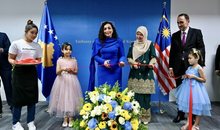
Kosovo opens embassy in Malaysia
2025-05-02 22:21:37
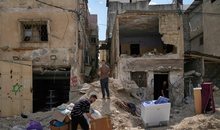
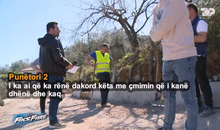

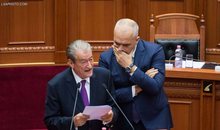
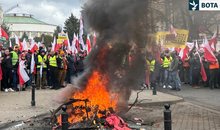
Analysis: Why is EU-Ukraine trade at risk of becoming less free?
2025-05-02 20:54:39


Refused asylum in Italy, 15 migrants sent to Gjadri camp
2025-05-02 20:30:04
Edi Rama's return to the (losing) 2011 campaign
2025-05-02 20:22:18
Moments of panic in Stuttgart/ Car "runs" into crowd of citizens
2025-05-02 20:02:06

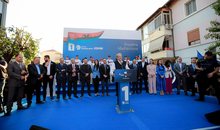
Berisha: Rama travels twice as much as the US president
2025-05-02 19:00:58

Phoebe Gates accidentally reveals that Bill Gates has Asperger's syndrome
2025-05-02 18:45:02

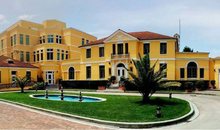
US against "birth tourism": Parents who abuse tourist visas risk entry ban
2025-05-02 18:09:59

Elona Lalaj appointed General Director of Tirana Municipal Police
2025-05-02 17:33:39
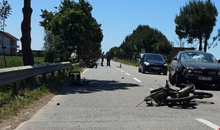
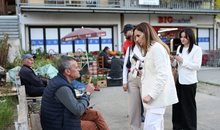

Nallbati challenges SP opponents to a public debate in the center of Devoll
2025-05-02 16:53:26
The US withdraws from peace negotiations between Ukraine and Russia.
2025-05-02 16:42:13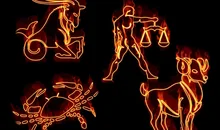
Zodiac signs that always know when you're lying to them
2025-05-02 16:27:17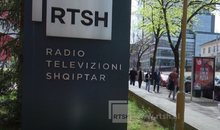
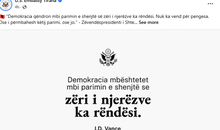

Trump makes changes to his inner circle
2025-05-02 15:56:38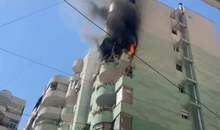
Fire in an apartment on "Tish Daija" street in Tirana
2025-05-02 15:41:27

Who can stop the price increase?
2025-05-02 15:08:52


Trump makes changes to his inner circle
2025-05-02 14:34:04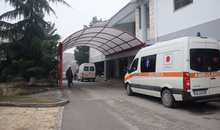
Theft at Korça hospital, nurse and patient robbed
2025-05-02 14:33:14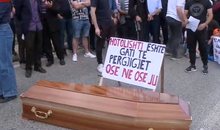
Hotolisht residents warn Rama-Balluk: Either us or you
2025-05-02 14:21:58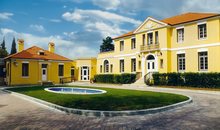
May 11th Elections, US Embassy in Tirana distributes JD Vance's message
2025-05-02 14:07:14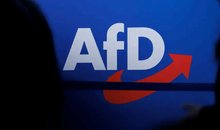
Germany declares AfD party an extremist group
2025-05-02 13:59:52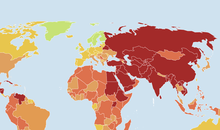
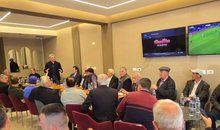
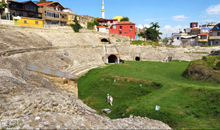
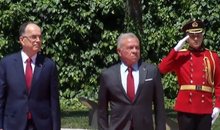
Begaj hosts King Abdullah II of Jordan with a state ceremony
2025-05-02 13:10:20

Italian MP: Vote for a great man like Berisha to change your destiny
2025-05-02 12:53:19
Florenc Çapja extradited from Dubai today
2025-05-02 12:39:21
Berisha: Every village will have the infrastructure of city neighborhoods
2025-05-02 12:30:53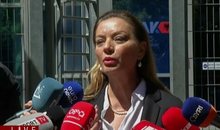


For a month in Albania, the tourist couple appeared happy on social networks.
2025-05-02 12:04:09
Bozdo meeting with farmers in Dimal: DP commits to real support for agriculture
2025-05-02 11:53:43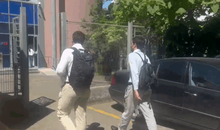
Diaspora for a Free Albania reports Belinda Balluku to SPAK
2025-05-02 11:41:15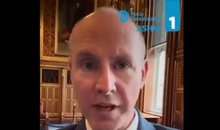
British Lord Supports DP in Elections: It's Time for Change in Albania
2025-05-02 11:32:48
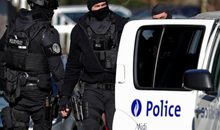
Anti-drug operation in Belgium, Italian-Albanian gang destroyed
2025-05-02 11:10:36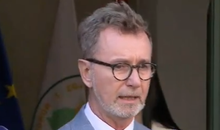
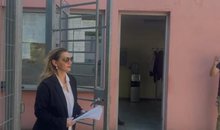
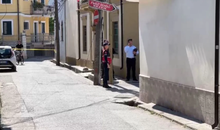
Murder in Shkodra, tourist stabs wife to death, shoots himself
2025-05-02 10:33:08
Compulsory insurance: Risk premiums between companies vary by up to 82%
2025-05-02 10:21:22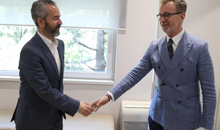
The DP electoral office in Cërrik is robbed
2025-05-02 10:11:07

Under investigation in Erion Veliaj's file, Ajola Xoxa appears before SPAK
2025-05-02 09:49:42
Hostage-taking and extortion, two young men extradited from Germany and Italy
2025-05-02 09:42:58
Reporters Without Borders: Deterioration of media freedom in Kosovo
2025-05-02 09:29:40
The DP headquarters in Cërrik was robbed during the night
2025-05-02 09:12:45

Olive oil remains in stock again, exports drop 75% for the period January-March
2025-05-02 08:49:08
Foreign exchange, the rate at which foreign currencies are sold and bought
2025-05-02 08:41:51
Early signs of dementia in young people in their thirties that are often ignored
2025-05-02 08:37:46

Horoscope, what do the stars have in store for you today?
2025-05-02 08:17:26
High temperatures, thermometer marks 31 degrees Celsius
2025-05-02 08:04:18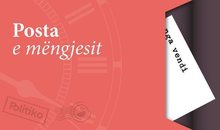
Posta e mëngjesit/ Me 2 rreshta: Çfarë pati rëndësi dje në Shqipëri
2025-05-02 07:49:13

DP candidate: Patronage agents follow us in cars during electoral meetings
2025-05-01 22:40:28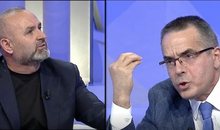



Forza Italia MP: Only Sali Berisha as Prime Minister can lead Albania to Europe
2025-05-01 21:29:47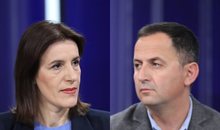

For those who were scared by Tomorr Alizoti
2025-05-01 21:05:21
Berisha challenges Rama: You promised free healthcare, come here and keep it!
2025-05-01 20:56:58



The six best foods against stomach bloating
2025-05-01 20:04:09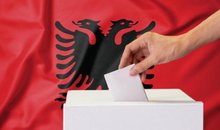


Zelensky: We want peace, Russia responds with attacks
2025-05-01 19:22:07

Berisha: The contract in the US is not just for the DP, but for every Albanian!
2025-05-01 19:08:14
Fight between teenagers, 15-year-old ends up in hospital
2025-05-01 18:44:17